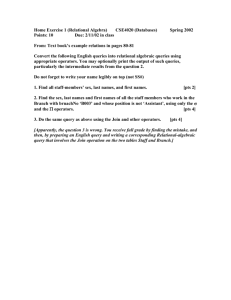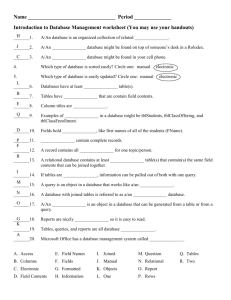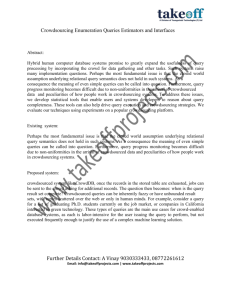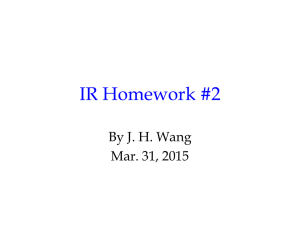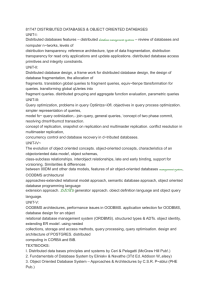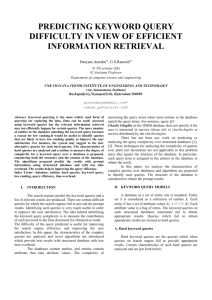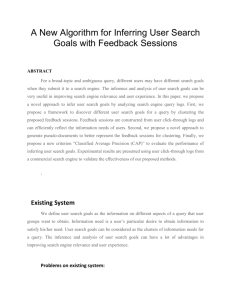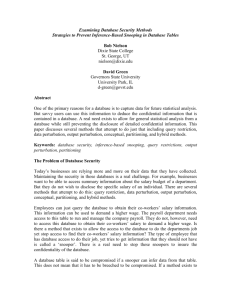Net - Softlect
advertisement
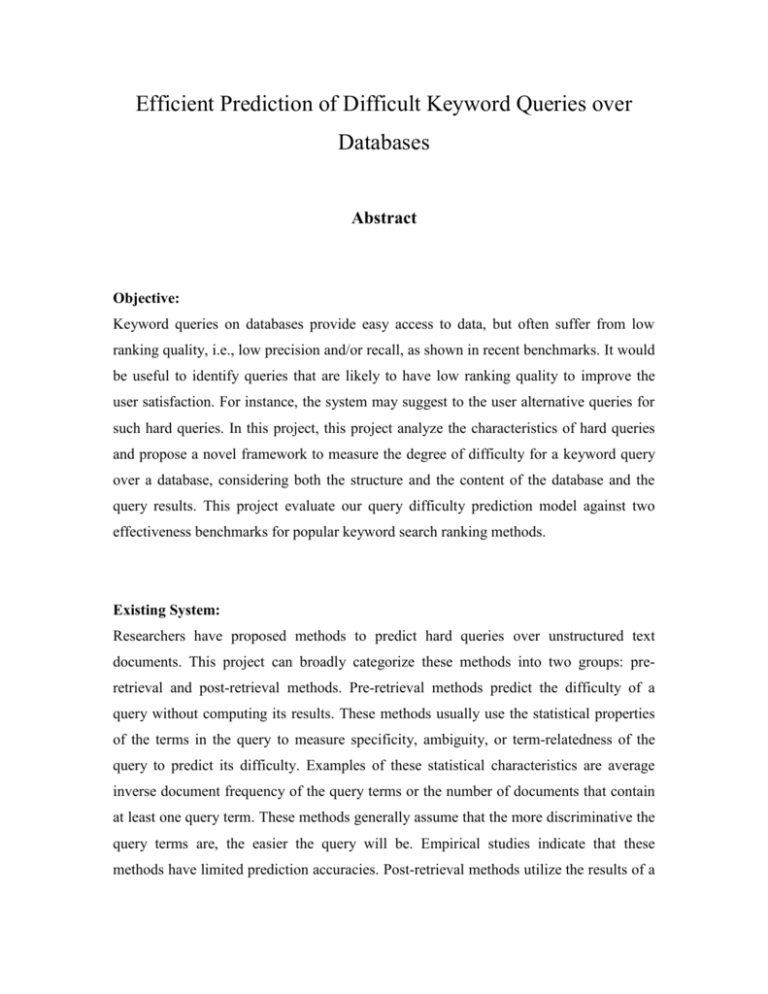
Efficient Prediction of Difficult Keyword Queries over Databases Abstract Objective: Keyword queries on databases provide easy access to data, but often suffer from low ranking quality, i.e., low precision and/or recall, as shown in recent benchmarks. It would be useful to identify queries that are likely to have low ranking quality to improve the user satisfaction. For instance, the system may suggest to the user alternative queries for such hard queries. In this project, this project analyze the characteristics of hard queries and propose a novel framework to measure the degree of difficulty for a keyword query over a database, considering both the structure and the content of the database and the query results. This project evaluate our query difficulty prediction model against two effectiveness benchmarks for popular keyword search ranking methods. Existing System: Researchers have proposed methods to predict hard queries over unstructured text documents. This project can broadly categorize these methods into two groups: preretrieval and post-retrieval methods. Pre-retrieval methods predict the difficulty of a query without computing its results. These methods usually use the statistical properties of the terms in the query to measure specificity, ambiguity, or term-relatedness of the query to predict its difficulty. Examples of these statistical characteristics are average inverse document frequency of the query terms or the number of documents that contain at least one query term. These methods generally assume that the more discriminative the query terms are, the easier the query will be. Empirical studies indicate that these methods have limited prediction accuracies. Post-retrieval methods utilize the results of a query to predict its difficulty and generally fall into one of the following categories. Clarity-score-based: The methods based on the concept of clarity score assume that users are interested in a very few topics, so they deem a query easy if its results belong to very few topic(s) and therefore, sufficiently distinguishable from other documents in the collection. Researchers have shown that this approach predicts the difficulty of a query more accurately than pre-retrieval based methods for text documents. Some systems measure the distinguishability of the queries results from the documents in the collection by comparing the probability distribution of terms in the results with the probability distribution of terms in the whole collection. Proposed System: In this project, this project analyze the characteristics of difficult queries over databases and propose a novel method to detect such queries. This project take advantage of the structure of the data to gain insight about the degree of the difficulty of a query given the database. This project introduce the problem of predicting the degree of the difficulty for queries over databases. This project also analyze the reasons that make a query difficult to answer by KQIs. This project propose the Structured Robustness (SR) score, which measures the difficulty of a query based on the differences between the rankings of the same query over the original and noisy (corrupted) versions of the same database, where the noise spans on both the content and the structure of the result entities. This project present an algorithm to compute the SR score, and parameters to tune its performance. Software requirements 1. Operating Windows 2000/XP System 2. Languages/ Visual Studio 2005 Software .Net Framework 2.0, Visual Studio C# Hardware requirements Number Description 1 Pentium-IV PC with 20 Not-Applicable GB hard-disk and 256 MB RAM, Keyboard, Mouse 2 Server: Pentium – IV with 40GB, 256 MB Ram Alternatives (If available)
